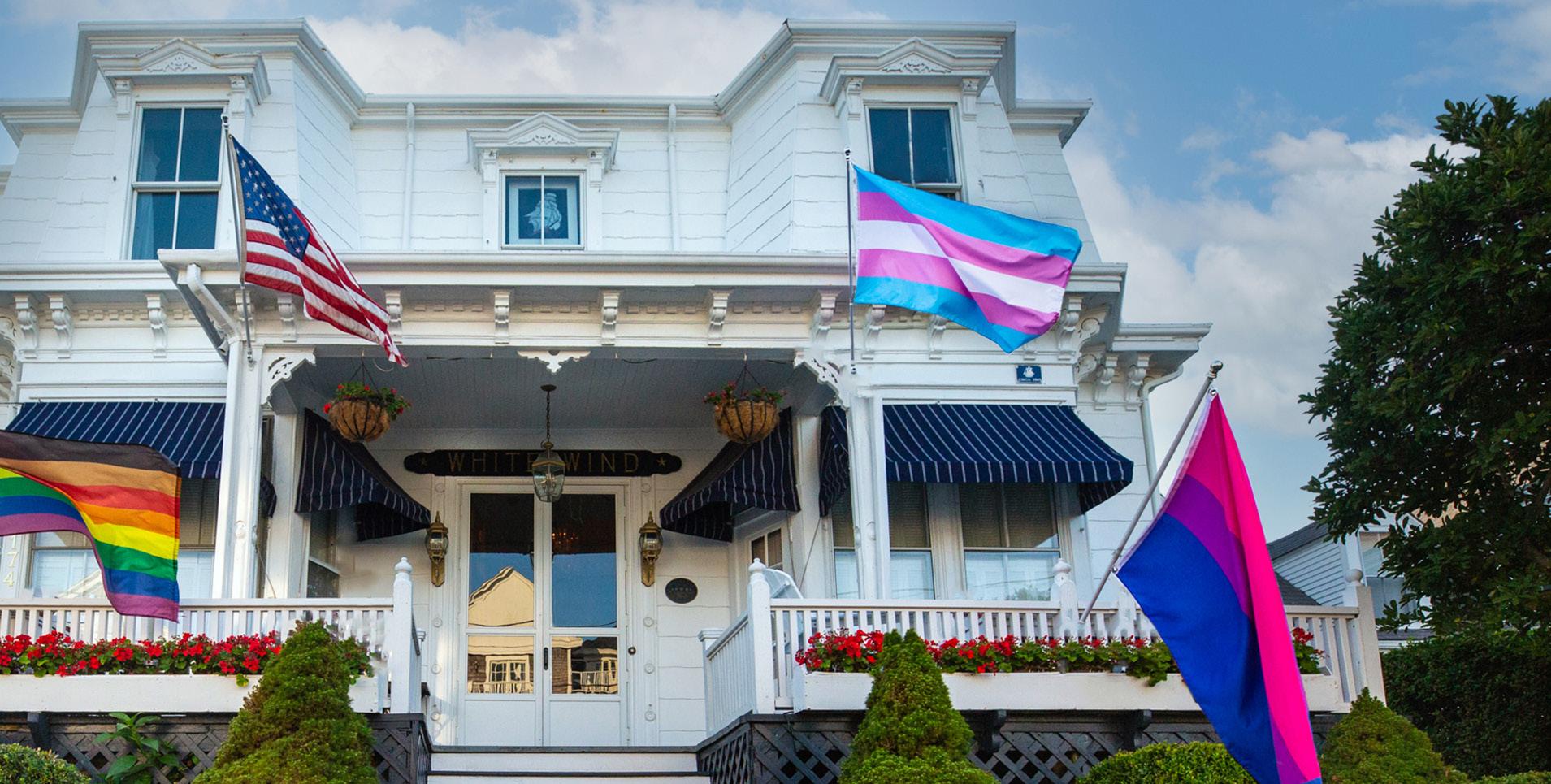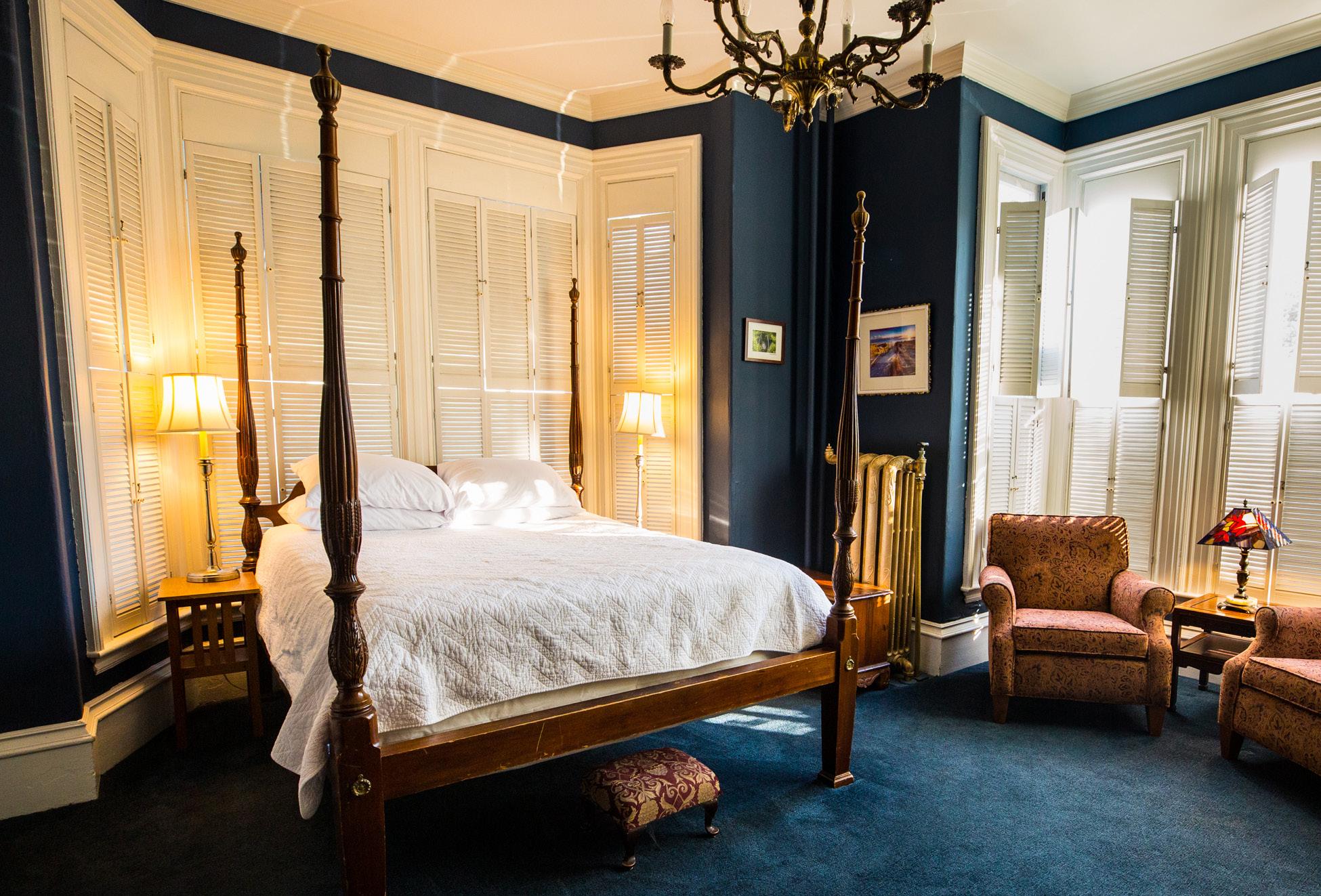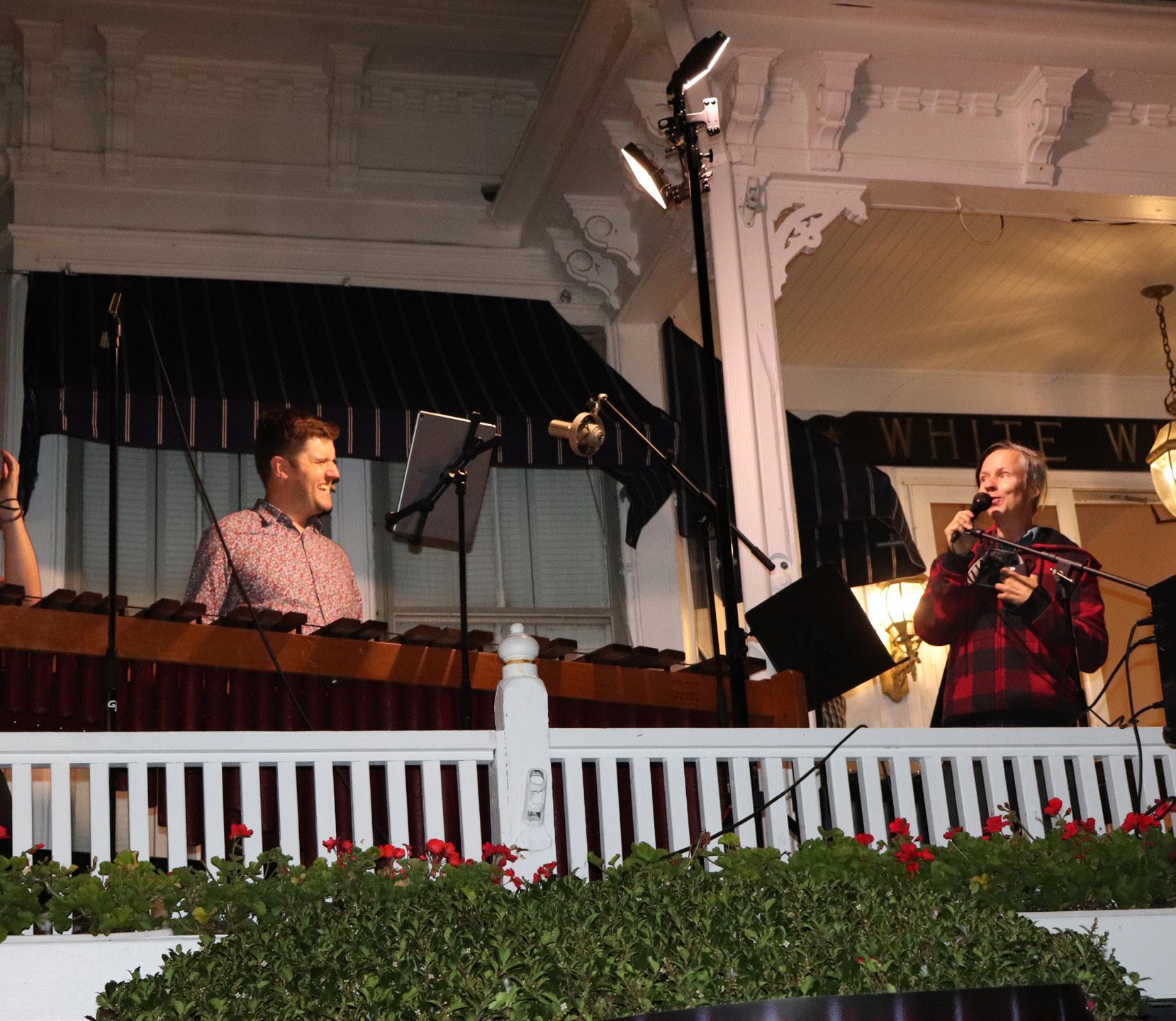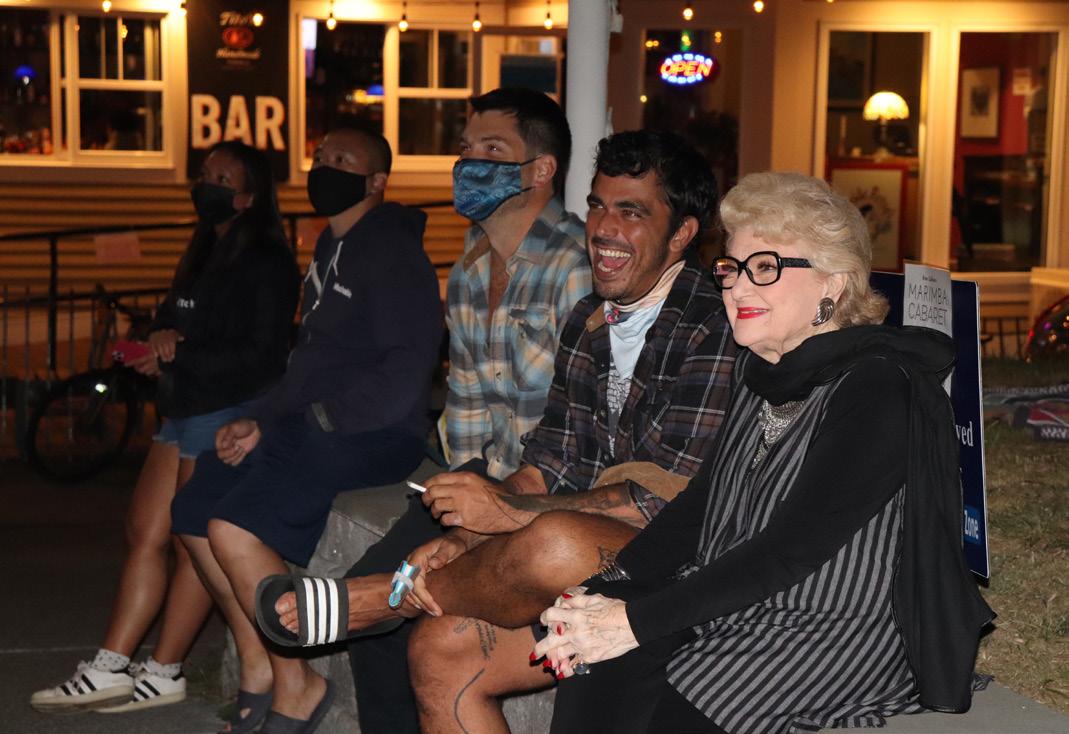
5 minute read
Innkeeping in Quarantimes
Written by Brian Calhoon
www.brasswoodptown.com || @brasswoodptown
Advertisement
On April 13, 2020, my husband and I closed on the sale of our new business to embark on an entirely different career: We left our life in Boston to run a bed & breakfast in Provincetown, Massachusetts. (The Ides of March paled in comparison to this fateful day.) Just a few days prior, we had sold our condo, left our stable jobs, salaries, pension and benefits to become innkeepers in a tourist town at the height of closures due to the Covid-19 pandemic. When we arrived at our new home, a beautiful Victorian mansion with over 175 years of history in her bones, we stood on the front porch and looked out over an empty Commercial Street and thought, “$#!%...what have we just done?”
Like so many Americans, we too were working from home, but that was the plan all along: We live at the inn, so our home is also our place of work. To say the pandemic had its share of silver linings is an understatement. Sure, we weren’t able to open for months, and we had more cancellations and refunds than we care to remember, but we survived our first season — and are still smiling.
In a typical year, we would hit the ground running with non-stop bookings and a flurry of return guests. In 2020, the slow start to the season allowed us to step more gently into a new industry and learn on the job. The lack of certainty and a cautious rate of new bookings made it difficult to build budget projections. We essentially threw our original business plan out the window and had to start from scratch. But we were delighted to find that our neighbors (many of whom are fellow innkeepers) were happy to share their experience and commiserate while we shifted gears to meet CDC guidelines. These long-time business owners were having to craft new approaches to serve their customers while we were simply learning how to do it for the first time. We only know how to run an inn during a pandemic.

Still, we found ourselves busier than expected. Many guests were eager to get out of their homes and happy to respect the safety protocols for the chance of a change of scenery. Cancellations during popular themed weeks resulted in new guests being able to enjoy a town they love or experience a place they have always wanted to visit.
Fortunately, there was financial relief from the bank and Small Business Administration that allowed us to invest in updates like keyless locks to reduce contact at check in (no more fumbling of keys exchanging hands). Breakfast buffets are a thing of the past. This year, our breakfasts were made to order and delivered to the room on a tray of individually wrapped items. Less food waste provided both environmental and economic benefits, plus the perk of feeling like room service while also meeting safety guidelines. The chance for faceto-face interaction with guests is a big part of the bed and breakfast experience.
Were it not for the pandemic, none of these things would have happened. We never would have considered these alternatives or afforded to make these updates. The response from guests has surpassed our expectations. In fact, we will stay with this approach even when the pandemic is behind us.

Since so many things were in flux, it seemed as good a time as any for us to rebrand and change the name of our inn to reflect our identity as a welcoming, inclusive space. The name “Brasswood” is a musical reference to the trumpet (brass) and marimba (wood), which my husband and I play, respectively. Our mission is to support the arts as well as artists, with a focus on historically underrepresented communities (musicians of color, female-identifying artists, etc.).
The biggest surprise was the response from the Provincetown community. This former fishing village turned artist colony is full of passionate, creative people. Town-sanctioned ambassadors walked the streets and used positive encouragement to remind visitors to wear masks and follow social distance guidelines. Business owners shared best practices and worked together in unprecedented ways. Residents took care of each other and hung signs of “Hope” on doors across Commercial Street.
With performances being relegated to virtual livestreams, it left local musicians (including myself) starving for in-person opportunities, and tourists starving for live entertainment. As an experiment, I rolled my marimba onto our prominent front porch overlooking Commercial Street and began to play. The response from the public was electric. What started as a casual concert turned into a weekly event throughout the summer with a growing audience — masked and socially distanced, of course. We invited local musicians to perform in a safe, free way for a community that loves to support its artists. Our porch transformed into a literal and figurative platform for artists seeking an opportunity to practice their craft and connect with the community.

One particularly memorable collaboration was with visual artist Josh Moths who repurposed a large Independence Day-themed work into a Black Lives Matter protest piece. This was lovingly displayed on our front lawn during election season.

It’s no surprise that a town full of creatives would come up with new and unique solutions to the challenges we were all facing. After all, necessity in the mother of invention and constraints breed creativity. By being forced into new routines that we invented and discovered, our business was able to grow and evolve into our own. We are profoundly proud of what we’ve achieved as a business and as a community.
Anyone with a good head on their shoulders would question whether starting a new business during a pandemic was a smart decision. We couldn’t have done it any other way, and I don’t regret a thing.




